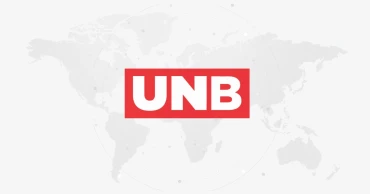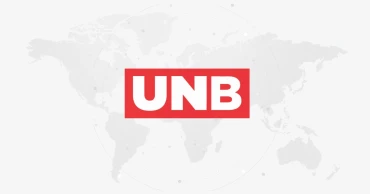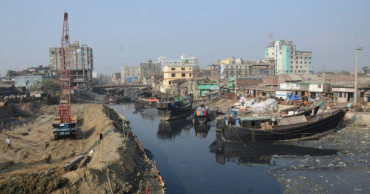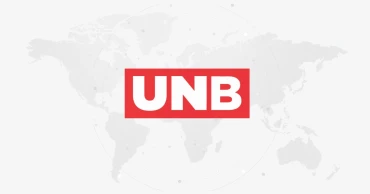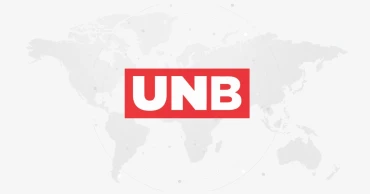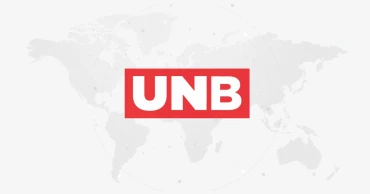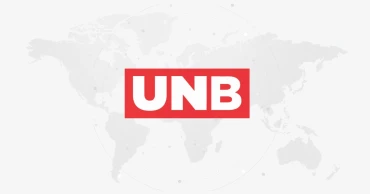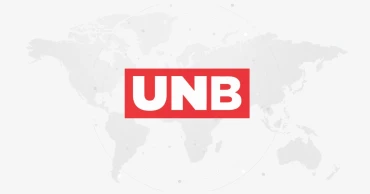Wasa
HC asks ACC to let it know progress of probe against Wasa MD
The High Court has asked the Anti-Corruption Commission (ACC) to submit an update on the ongoing investigation against Taqsem A Khan, managing director of Dhaka Water Supply and Sewerage Authority (Wasa) on Tuesday.
Justice Md Nazrul Islam Talukder and Justice Khizir Hayat passed the order on Monday after hearing a writ petition challenging the legality of the Taqsem’s appointment as Wasa MD since 2009.
Advocate Khurshid Alam, ACC lawyer, said that he will inform the court about the progress of the probe on Tuesday.
Read: HC: Writ petition filed challenging Taqsem Khan’s appointment as Wasa MD
Barrister Syed Sayedul Haque Suman, a former prosecutor of the International Crimes Tribunal filed the writ petition challenging the legality of Taqsem’s appointment as MD of Wasa alleging flawed process in hiring him.
Seven officials including LGRD secretary, public administration secretary were made respondents to the writ petition.
Barrister Suman said Taqsem has been serving as Wasa MD for the last 13 years since 2009.
During his tenure he has raised the water price to Tk 15 per unit from Tk 6 per unit. He has remained in his post despite allegations of corruption against him, he said.
In 2009 he was appointed after rewriting and rigging his exam result as it was required to have 20 years of experience for that position and he had no such relevant experience, said Suman.
Read: HC Chamber Judge asks Wasa MD to submit salary statement
“His appointment letter mentions that the authority is requesting to maintain caution while examining and considering contractual appointments in future. Which means there was some sort of rigging that happened yet his tenure was extended later,” he explained.
The writ petition was filed as his recruitment process needs to be probed, he said.
Taqsem’s tenure as Wasa MD has been extended three times after his 2009 contractual appointment for three years, he said.
3 years ago
Sewerage: Dhaka, Tokyo launch partnership for improved services
To promote improved sewerage services in Bangladesh, the Asian Development Bank (ADB) has helped launch a new partnership between Dhaka Water Supply and Sewerage Authority (DWASA) and the Bureau of Sewerage of Tokyo Metropolitan of Japan.
The ADB facilitated a high-level dialogue between Bangladesh and Japan. The dialogue, led by Bangladesh's LGRD Minister Md Tazul Islam, took place during October 3-6 in Tokyo. It included meetings with the governor of Tokyo and the minister of land, infrastructure, transport and tourism of Japan to discuss broader cooperation in the sewerage sector.
Read: ADB plans to provide $14 billion to ease worsening food crisis in Asia
A memorandum of understanding (MoU) was signed by DWASA and the Bureau of Sewerage of the Tokyo Metropolitan government to start a one-year cooperation programme under Water Organizations Partnership for Resilience, said a media statement.
According to the agreement, cooperation activities will be implemented in the areas of smart and resilient sewerage services with a focus on the efficient energy plan, climate change adaptation and mitigation, efficient operation and maintenance, sludge management, and compact sewerage treatment plants.
The activities will also aim to transfer best practices, expertise, and technology through peer-to-peer exchanges between D
3 years ago
WASA key reason behind pollution of Dhaka’s rivers, NRCC chairman says
Although there are directives from the country’s highest court to save rivers, authorities concerned have failed miserably to stop pollution and encroachment. Thus, rivers around Dhaka city are still being polluted.
In an interview with UNB, Dr Manjur Ahmed, chairman of National River Conservation Commission (NRCC), put a major share of the blame on Dhaka WASA.
Dhaka WASA’s failure to construct enough sewerage lines has created a disastrous situation. Factories in and around Dhaka dispose of waste into the rivers surrounding the city. Combination of household and industrial wastes has turned rivers like Buriganga and Shitalakhya “ecologically dead”.
Read:Buriganga Pollution: Contempt rule issued against Wasa MD
“All the human waste produced in Dhaka city goes into the four rivers surrounding it. This happens due to Dhaka WASA’s failure to manage the waste. Excrement and rainwater go to the rivers through the same pipe. It was WASA’s duty to set up separate pipes for proper flow of the wastes. They didn’t do so, and as a result rivers are being polluted fast,” said Manjur.
The NRCC chairman added that although much of the grabbed lands by the rivers have been recovered, pollution couldn’t be stopped as those responsible were not brought under the law.
“At least four crore people live in and around Dhaka city but there isn’t a single river or waterbody where people can bathe. Population density, unmanageable development, withdrawal of water in the upstream and climate change are affecting the country’s rivers. As an organization working to conserve rivers, NRCC is acutely aware of these problems,” said Manjur.
Read:Dhaka rivers get polluted, WASA moves to supply water from Meghna
About NRCC, Manjur said that the role of his organization is to identify the problems and provide recommendations to the concerned authorities.
“NRCC is a relatively new organization. Some recommendations made by us have already been implemented and others are pending with the authorities. So far, we’ve identified 57,000 illegal encroachers and evicted 14,000 of them through the help of the district administrations and Bangladesh Inland Water Transport Authority (BIWTA),” said Manjur.
On the demarcation of river boundaries, the NRCC chairman said that it’s a tough task.
Read Tajul briefs JS on Wasa, city corporations' projects to serve capital
“The boundaries of Buriganga, Turag and Balu rivers have already been demarcated. I hope that the rest of the rivers will also be demarcated gradually,” said Manjur.
On the master plan that NRCC was preparing, Manjur said that it is yet to be completed.
“The process of preparing the master plan was interrupted due to the Covid-19 pandemic. I hope that we’ll be able to complete the master plan within a short time,” the NRCC chairman said.
Read LGRD Minister directs WASA to fix water price in capital rationally
During the interview, he informed UNB that his organization aims to put an end to pollution of the rivers surrounding Dhaka within March 17, 2023, which is the birth anniversary of Father of the Nation Bangabandhu Sheikh Mujibur Rahman.
“We’ll provide directives to all the government and private establishments in Dhaka and adjacent areas to stop polluting the rivers surrounding the city very soon. Legal steps will be taken if anyone breaches the rules and fails to comply with the directives,” Manjur said.
3 years ago
Tajul briefs JS on Wasa, city corporations' projects to serve capital
LGRD Minister Tajul Islam on Tuesday said Dhaka WASA has taken plans and initiatives to bring the entire capital under 100 percent permanent sewerage network by 2030.
In response to a tabled question from ruling Awami League MP Nurunnabi Chowdhury, Tajul said that according to the plan, five sewerage treatment plants will be set up around the capital city.
Those treatment plants are: Pagla sewer and network treatment plant, Dasherkandi sewage treatment plant, Rayer Bazar sewage treatment plant, Uttara sewage treatment plant and Mirpur sewage treatment plant.
The LGRD minister also said that construction of Dasherkandi sewage treatment plant is already complete and a trial run is going on at present.
In reply to another query, the LGRD minister said that more than 6000 metric tons of waste is produced under the two city corporations of Dhaka every day.
Read: 19th JS session to continue till September 1
The minister also said that the government has taken up plans to produce biogas, bio-fertilizer, electricity, recycling plant through modern waste management.
In response to a question from AL MP Didarul Alam, the LGRD minister said that 54 wards under Dhaka North City Corporation produce about 3,400 tons of waste every day.
About 84 percent of the waste arrives at secondary transfer stations. Later it is regularly removed by environmentally friendly vehicles and managed in landfills.
The remaining 16 percent is broom waste, which is removed at night by open trucks.
The minister said Dhaka South City Corporation collects 2800-3000 tons of waste daily and manages the waste at Matuail Landfill. Waste collection rate is more than 90 percent.
3 years ago
LGRD Minister directs WASA to fix water price in capital rationally
LGRD Minister Tajul Islam on Sunday asked Dhaka Water Supply And Sewerage Authority (Wasa) to fix the price of water in the capital rationally.
The minister gave the direction at the result presentation ceremony of technical study conducted by Dhaka Wasa for fixing zone based water price in the city.
“Water should be supplied to low income earners and slum-dwellers at a lower price than the people living in affluent zones,” he said.
He said “There is no scope to provide water to the rich at a lower price by taking revenue from the poor.”
Read: Dengue situation under control, says LGRD Minister
Not only water, service costs of other utilities like holding tax, gas, electricity should also be fixed based on different zones, the minister added.
He said no organization can run on providing subsidies. Wasa will fix the water price through a board meeting. It is not right to raise the water price irrationally as well as there is no scope to not assist in paying the rationally fixed price.
“It will be investigated whether the water price is rising due to corruption and it will not be tolerated,” said Tajul Islam.
3 years ago
Court rejects Tk132 crore embezzlement complaint against Dhaka WASA MD, 8 others
A Dhaka court Thursday rejected a complaint of Tk132.4 crore embezzlement filed against Dhaka Water Supply and Sewerage Authority (WASA) Managing Director Taqsem A Khan and eight others after hearing it.
Md Shahab Uddin Sarkar, secretary of Dhaka WASA Karmachari Bahumukhi Samabay Samity, filed the complaint at the Court of Metropolitan Magistrate Ashekh Imam.
Other accused in the complaint were Dhaka WASA engineer Sharmin Haque Ameer, former revenue inspector Md Mizanur Rahman, engineer Md Akteruzzaman, revenue inspector Md Zakir Hossain, engineer Md Badrul Alam, Janata Bank former DGM Shyamal Biswas, deputy secretary Sheikh Enayet Ullah, and deputy-chief accountant Md Salequr Rahman.
Also Read: Rajshahi double murder: SC acquits two death-row convicts, commutes sentence of another
According to the complaint, Taqsem A Khan and others embezzled over Tk132.4 crore from the fund of Dhaka WASA Karmachari Bahumukhi Samabay Samity from six banks through various cheques in the fiscal year 2017-2018.
They were also accused of stealing movable and immovable properties, including cars of the association, worth Tk200 crore.
An audit report of the Department of Cooperatives shows that the claims of irregularities are true, the complaint says.
3 years ago
Drink boiled water, WASA MD urges city dwellers
Amid the outbreak of diarrhea in the city, the Managing Director of Dhaka Water Supply and Sewerage Authority (WASA) Taqsem A Khan has urged the users to drink water after boiling it.
“Only 5% to 10% of water lines have leakages. When we get any complaint we repair those. But the problem still remains. I myself got a foul smell in the water in my Naya Paltan residence. That’s why we urge people to drink boiled water,” he said.
The WASA boss was speaking at a function that discussed the demand of city dwellers and the capability of DWASA, organised by Dhaka Utility Reporters Association (DURA), at National Press Club.
He said the number of breached lines is not many. But when people see any digging going on roads they think it is the line of WASA that contaminates the water, claimed Taqsem.
Replying to a question, he said it is responsibility of the utility to reach the water to the tank but it is not our responsibility to reach it to each line of the buildings. If there is any problem in WASA water we scrutinise it after collecting samples from three places. One is from the pump, the second is from the area from where we receive the complaint and the third one is from the pipeline of the respective houses.
READ: Dhaka Wasa moves to raise water tariff by 40%
Following the rise in diarrhea patients in Dhaka, many people blamed the contaminated water of WASA behind the outbreak.
Taqsem said when diarrhea outbreak is on the rise, International Centre for Diarrhoeal Disease Research, Bangladesh (icddr,b) provided the address of ten areas where the number of diarrhea patients was high.
"We collected water from these areas and sent them for lab testing. But we do not get any bacteria from the water samples.”
Besides, DWASA used chlorine to destroy bacteria found in its water, he said.
Asked about the proposed hike of water tariff, Taqsem said “We have informed the higher authorities concerned about it and the government will take a decision on it.”
3 years ago
Dhaka Wasa moves to raise water tariff by 40%
Managing Director of Dhaka Water Supply and Sewerage Authority (Dhaka Wasa) Taqsem A Khan has said that the water tariff should be raised byvat least 20 percent.
He made the remarks on Wednesday while briefing reporters about the water entity’s recent proposal placed at a Wasa board meeting to raise its tariff by 40 percent.
“We’ve moved the proposal to adjust the tariff with our production costs,” he said.
READ: Sylhet to get its own WASA: LGRD Minister
As per the proposal, placed at the Wasa Board meeting on Monday last, the water tariff for household consumers will go up to Tk 21 from Tk 15.18 while commercial consumers’ tariff will be raised to Tk 55 from the existing Tk 42.
If the proposal is approved by the Wasa Board, it will come into effect on July 1, 2022.
Defending the tariff enhancement plan, the Dhaka Wasa chief said the initiative has been taken to make the organisation financially viable and self-reliant.
“We've to do the debt servicing regularly to pay back the loans taken from international financing agencies to implement our different development projects,” Taqsem told reporters.
The government is the guarantor of these loans, he added.
He claimed that still the government has been providing a huge amount of subsidy to the Dhaka Wasa to keep the city’s water tariff lower and keep the entity smoothly functional.
“We've been receiving Tk 10 as the government subsidy per 1000 litres of water. But an organiasation like Dhaka Wasa cannot sustain depending on such financial support," said Taqsem Khan.
READ: HC suspends demotion of WASA’s Executive Engineer
He said there is advice from the government to gradually raise the water tariff.
The water tariff of the Dhaka Wasa was raised on 13 occasions in the last 13 years since the Awami League assumed office in 2009.
4 years ago
Sylhet to get its own WASA: LGRD Minister
Sylhet WASA will be established soon to solve the problem of water and sewerage in Sylhet metropolis, said Local Government and Rural Development (LGRD) Minister Md Tajul Islam.
The minister said, "There is a need to build environmentally friendly, sustainable and people-oriented drinking water supply and sanitary drainage systems for the people of the metropolis."
Sylhet is one of the most important cities in the country. Due to population and urbanisation, the dwellers need to be provided with much needed civic amenities, said the minister in a meeting on setting up of 'Water Supply and Sewerage Authority' (Sylhet WASA) in Sylhet City Corporation area as per 'Water Supply and Sewerage Authority 1996' organized virtually on Sunday.
Read:BGMEA urges LGRD Ministry to repair roads in industrial areas
Tajul Islam informed that necessary instructions have been given to the Ministries, Departments, Offices and Agencies concerned to take immediate action for issuing Gazette Notification, Organogram, Formulation of Employment Rules and other activities as initial steps for formation of Water Supply and Sewerage Authority (Sylhet WASA) in Sylhet metropolis.
The Minister also expressed hope that it will be possible to establish Sylhet WASA very soon.
Stating his ministry is working tirelessly to protect the overall environment by adopting and implementing realistic sustainable projects for the development of drinking water supply management in urban and rural areas, he said the government has placed more emphasis on surface water use by reducing dependence on groundwater resources.
To this end, various steps have been taken to increase the use of river water in urban as well as rural areas, digging ponds, and using surface water through rainwater harvesting.
In this regard, he further said, in accordance with SDG, it has been assured to use 70% surface water by 2030. And Bangladesh will achieve the target before this time.
The LGRD minister said there are water problems in many countries of the world. "Being a riverine country, we have fewer problems with water than many other countries. Even after this capacity, we are working to ensure drinking water and a healthy sewerage system in remote areas of the country."
Mentioning that the country is moving forward under the leadership of Prime Minister Sheikh Hasina, he said that unprecedented success has been achieved in the development of all sectors due to collective work not only in water but also in other sectors.
Read:Recovered city canals will end waterlogging and add beauty: LGRD Minister
Meanwhile, taking part in the meeting, Foreign Minister Dr AK Abdul Momen said the population of Sylhet has increased many times over. So it became urgent to establish a WASA there.
He thanked the LGRD Minister for taking the initiative to establish Sylhet WASA from this realization and assured all possible assistance for its speedy implementation.
The meeting was attended by Senior Secretary of LGRD ministry Helal Uddin Ahmed, Mayor of Sylhet City Corporation Ariful Haque Choudhury and senior officials of the ministry concerned.
4 years ago
20-year masterplan to revive Dhaka's rivers in the works
A 20-year masterplan will be adopted by the government to return life to the rivers surrounding capital Dhaka - by preventing their pollution, ridding them of illegal occupation and long-term beautification.Work is already underway to remove illegal establishments along the rivers and building walkways and through afforestation.Besides, the government plans to generate electricity from river waste and to take steps in closing the sources of river pollution, said sources within the Ministry of Shipping.
Read: 60 illegal establishments evicted from Kirtankhola river banksThe masterplan which also aims to increase the navigability of rivers alongside preventing river pollution and encroachment, is currently in the final stages of being drafted.The masterplan has been prepared by reviewing the current situation of the tributaries, rivers and canals of Dhaka and the surrounding districts.According to the draft plan, the status quo will be developed in four steps, through a 1-year crash program, a short term plan of three years, a middle term plan of 5 years and a long term plan of 10 years.
Read Experts seek master plan for sustainable river dredging
According to Bangladesh Inland Water Transport Authority, around 113 acres of illegally occupied land belonging to rivers has already been regained as part of the process.In the first phase, 10,000 boundary pillars, 52-km walkways, 3 eco parks and 19 jetties will be constructed on the banks of the rivers freed by the eviction drive.The project will cost Tk 800 in crore in the initial stage as per the draft, added the sources.
Read Government urged to prepare integrated power-energy master plan
Emphasis has been given to build eco-parks on the banks of the Buriganga and Turag to attract tourists.
4 years ago
